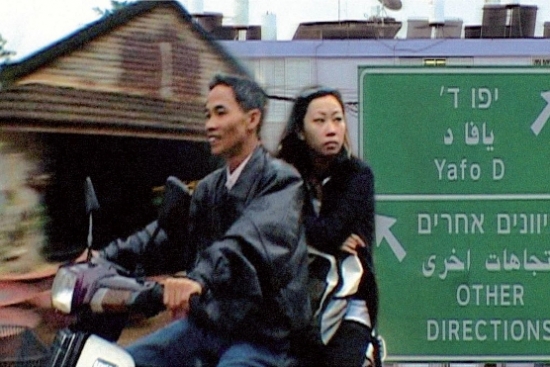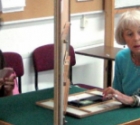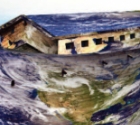
The last film in the ESRA’s Cinema Club season was a sad one. This poignant film is seen through the eyes of a young Vietnamese girl Vaan, the eldest of five daughters born to “Vietnamese boat people”, who were given asylum and Israeli citizenship by Menachem Begin in 1977. Begin felt empathy for these people as they reminded him of Jewish refugees during the second world war when there was no safe harbor for the Jews.
These gentle parents brought up their five girls is South Tel-Aviv, and Hoimai, the father, worked hard in a restaurant to give his “girls” a good life in Israel. The apartment, the clothes and jewelry that the girls and their mother wore, were certainly a testament to this. Sadly, they became parents of twins who then died, Hoimai said that they had problems finding a cemetery that would accept them. Finally, they were buried in a Moslem cemetery.
The most revealing aspect of this film was whether the father and mother were happy or sad. Their faces never revealed their true feelings, and this fact is prevalent throughout the film. The daughters, on the other hand, being born and brought up in Israel’s free society, showed their emotions from sadness through tears, and laughter through to anger and disappointment, and like all Israelis, were perfectly clear and honest about them.
Hoimai hungered for his homeland, and as his family had been landowners, decided to return to Vietnam to be reunited with his brothers and family there. Naan followed her father to Vietnam with the idea that she would “fit in” there, but gradually she discovered that Vietnam wasn’t the paradise her father had made her believe it was. It was still a communist state and freedom of expression and demand of the rights of the individual were not allowed. Hoimai had no documentation that he or his brothers owned any land and after visiting his grandfather’s village out of which the mayor had chased him many years earlier during the war by putting a pistol to his head and telling his to clear out, his smiling face belied the feelings of anger and disappointment that he must have felt. Not so with Vaan. She was indignant that her father and her uncles had not stood up for themselves, and although her face “fitted in” whether strolling in the city or in the countryside, she was soon called a “new Vietnamese” which meant she wasn’t part of the culture there either.
Had we not taken these displaced Vietnamese boat people into our land and given them a new start in life, they would surely have drowned or died in some freak storm on board their leaky boat. On reflection, it is arguable whether refugees of a totally different culture can be happily transplanted in foreign soil, no matter how much nurturing they are given.
The new season of the Cinema Club begins on November 25, and we have a batch of exciting new films for your pleasure, so don’t forget to look out for the advert in your ESRA MAGAZINE and book your seats early.
 THE RABBI’S DAUGHTER - A Review
THE RABBI’S DAUGHTER - A Review  Spotlight on .....Roz Brodie
Spotlight on .....Roz Brodie  ESRA COMPUTER CLUB
ESRA COMPUTER CLUB Art from the Heart
Art from the Heart Jewish Art Returns to Jerusalem
Jewish Art Returns to Jerusalem Musical Treats
Musical Treats Sara Groundland
Sara Groundland